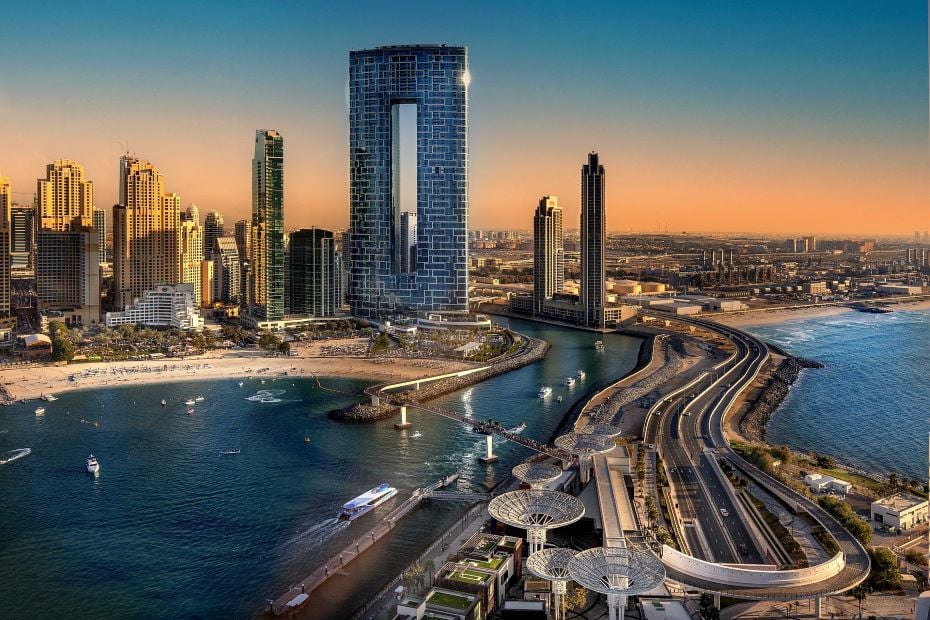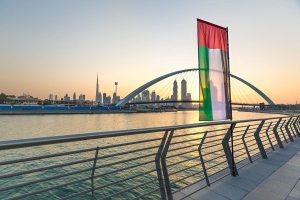Shayan Zaeem, co-founder and president of Revolving Games, is just one of thousands of remote workers around the globe. He has landed up in Dubai, which is ramping up efforts to pitch itself as a destination for more people like him.
His company, which is currently working on a new BattleStar Galactica game with Universal Studios, is headquartered in San Francisco but due to the pandemic scaled its operations globally.
“Most people prefer working from home in the tech industry, and Dubai was a no brainer for me,” he said, tempted by the infrastructure and facilities of the “vibrant, multifaceted city.”
Dubai, the largest city in the United Arab Emirates, launched a one-year virtual working program in 2020 that Zaeem took advantage of. It has so far received 30,000 enquiries (a spokesperson didn’t confirm the number of visas approved).
The United Arab Emirates has also introduced a raft of new longer term 5 and 10-year residency Golden Visas, 80,000 of which were issued last year.
Now Dubai’s looking to appeal to a wider demographic following a new partnership with Airbnb, among other initiatives.
Airbnb Backing
Dubai’s Department of Economy and Tourism set up an online remote working hub with Airbnb in December last year. The Middle Eastern city is one of 20 global destinations in the home-sharing platform’s Live and Work Anywhere initiative.
Airbnb also published a guide for governments outlining recommendations for how communities can benefit economically in September 2022.
“We’re delighted to be one of the 20 destinations to partner with Airbnb and we expect to see a positive uplift in remote working,” said Issam Kazim, CEO of the Dubai Corporation for Tourism and Commerce Marketing.
The remote working focus comes as the United Arab Emirates looks to boost tourism’s contribution to the national gross domestic product to $122 billion a year by 2031. Its new UAE Tourism Strategy 2031 also targets 40 million hotel guests in 2031. Dubai alone received 14 million international overnight visitors in 2022, double the amount of 2021.
A ‘Pricey’ Destination
Part of its strategy to draw more people probably also explains why it made alcoholic drinks cheaper, but there are concerns Dubai — like many fast-recovering destinations — may soon start pricing out digital nomads.
The emirate is classified as “pricey” by the well-respected Nomadlist, with members reporting an average monthly accommodation spend of $3,652.
“For well-paid remote workers that like vibrant cities, it will be one of the shortlisted countries for sure,” said Mark Phillips, founder of Nomad Stays. ”But for most digital nomads, probably not. It’s just too expensive.”
Phillips also thinks Airbnb is pushing Dubai to move upmarket to compete with Expedia’s VRBO brand.
But for Zaeem, Dubai is a “melting pot” destination that can suit different budgets. “It depends on the person and what kind of lifestyle they want to live,” he said. “Yes it can be expensive if that’s the lifestyle you choose for yourself, however, if you want to live moderately and still want to enjoy a decent lifestyle you can do that as well easily.”
Apartment rentals for locals are also soaring, which could deter many digital nomads who seek out cheaper destinations to maximize their length of stay, as costs creep up to target tourists.
Portugal has seen this recently, and as a result plans to axe its Golden Visa scheme and ban new licenses for Airbnbs and other short-term rentals.
Will Dubai be able to keep its remote work allure if tourism takes over?
Source: Skift






